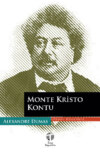Kitabı oku: «The Regent's Daughter», sayfa 12
CHAPTER XXIV.
THE ARREST
"The details of this affair may some day escape my memory, but the impression it made will never be effaced. I had not the shadow of a doubt; and this prediction took the aspect of a reality, as far as I was concerned. Yes," continued Pontcalec, "even though you should laugh, like my Uncle Crysogon, you would never change my opinion, or take away from me the conviction that the prediction will be realized; therefore, I tell you, were it true that we are pursued by Dubois's exempts – were there a boat ready to take us to Belle Isle to escape them, so convinced am I that the sea will be fatal to me, and that no other death has any power over me, that I would give myself up to my pursuers, and say, 'Do your worst; I shall not die by your hands.'"
The three Bretons had listened in silence to this strange declaration, which gathered solemnity from the circumstances in which they stood.
"Then," said Du Couëdic, after a pause, "we understand your courage, my friend; believing yourself destined to one sort of death, you are indifferent to all other danger; but take care, if the anecdote were known, it would rob you of all merit; not in our eyes, for we know what you really are; but others would say that you entered this conspiracy because you can neither be beheaded, shot, nor killed by the dagger, but that it would have been very different if conspirators were drowned."
"And perhaps they would speak the truth," said Pontcalec, smiling.
"But, my dear marquis," said Montlouis, "we, who have not the same grounds for security, should, I think, pay some attention to the advice of our unknown friend, and leave Nantes, or even France, as soon as possible."
"But this may be wrong," said Pontcalec; "and I do not believe our projects are known at Nantes or elsewhere."
"And probably nothing will be known till Gaston has done his work," said Talhouet, "and then we shall have nothing to fear but enthusiasm, and that does not kill. As to you, Pontcalec, never approach a seaport, never go to sea, and you will live to the age of Methuselah!"
The conversation might have continued in this jocular strain; but at this moment several gentlemen, with whom they had appointed a meeting, came in by different secret ways, and in different costumes.
It was not that they had much to fear from the provincial police – that of Nantes, though Nantes was a large town, was not sufficiently well organized to alarm conspirators, who had in the locality the influence of name and social position – but the police of Paris – the regent's police, or that of Dubois – sent down spies, who were easily detected by their ignorance of the place, and the difference of their dress and speech.
Though this Breton association was numerous, we shall only occupy ourselves with its four chiefs, who were beyond all the others in name, fortune, courage, and intelligence.
They discussed a new edict of Montesquieu's, and the necessity of arming themselves in case of violence on the marshal's part: thus it was nothing less than the beginning of a civil war, for which the pretexts were the impiety of the regent's court and Dubois's sacrileges; pretexts which would arouse the anathemas of an essentially religious province, against a reign so little worthy to succeed that of Louis XIV.
Pontcalec explained their plan, not suspecting that at that moment Dubois's police had sent a detachment to each of their dwellings, and that an exempt was even then on the spot with orders to arrest them. Thus all who had taken part in the meeting, saw, from afar, the bayonets of soldiers at their houses: and thus, being forewarned, they might probably escape by a speedy flight; they might easily find retreats among their numerous friends: many of them might gain the coast, and escape to Holland, Spain, or England.
Pontcalec, Du Couëdic, Montlouis, and Talhouet, as usual, went out together; but, on arriving at the end of the street where Montlouis's house was situated, they perceived lights crossing the windows of the apartments, and a sentinel barring the door with his musket.
"Oh," said Montlouis, stopping his companions, "what is going on at my house?"
"Indeed, there is something," said Talhouet; "and just now I fancied I saw a sentinel at the Hotel de Rouen."
"Why did you not say so?" asked Du Couëdic, "it was surely worth mentioning."
"Oh, I was afraid of appearing an alarmist, and I thought it might be only a patrol."
"But this man belongs to the regiment of Picardy," said Montlouis, stepping back.
"It is strange," said Pontcalec; "let me go up the lane which leads to my house – if that also be guarded, there will be no further doubt."
Keeping together, in case of an attack, they went on silently till they saw a detachment of twenty men grouped round Pontcalec's house.
"This passes a joke," said Du Couëdic, "and unless our houses have all caught fire at once, I do not understand these uniforms around them; as to me, I shall leave mine, most certainly."
"And I," said Talhouet, "shall be off to Saint-Nazaire, and from thence to Le Croisic; take my advice and come with me. I know a brig about to start for Newfoundland, and the captain is a servant of mine; if the air on shore becomes too bad, we will embark, set sail, and vogue la galères; come, Pontcalec, forget your old witch and come with us."
"No, no," said Pontcalec, "I will not rush on my fate; reflect, my friends; we are the chiefs, and we should set a strange example by flying before we even know if a real danger exists. There is no proof against us. La Jonquiere is incorruptible; Gaston is intrepid; our letters from him say that all will soon be over; perhaps, at this very moment, France may be delivered and the regent dead. What would be thought of us if, at such a time, we had taken flight? the example of our desertion would ruin everything here. Consider it well; I do not command you as a chief, but I counsel you as a friend; you are not obliged to obey, for I free you from your oath, but in your place I would not go. We have given an example of devotion; the worst that can happen to us is to give that of martyrdom; but this will not, I hope, be the case. If we are arrested, the Breton parliament will judge us. Of what is it composed? – of our friends and accomplices. We are safer in a prison of which they hold the key, than on a vessel at the mercy of the winds; besides, before the parliament has assembled, all Bretagne will be in arms; tried, we are absolved; absolved, we are triumphant!"
"He is right," said Talhouet; "my uncle, my brothers, all my family are compromised with me. I shall save myself with them, or die with him."
"My dear Talhouet," said Montlouis, "all this is very fine; but I have a worse opinion of this affair than you have. If we are in the hands of any one, it is Dubois, who is not a gentleman, and hates those who are. I do not like these people who belong to no class – who are neither nobles, soldiers, nor priests. I like better a true gentleman, a soldier, or a monk: at least they are all supported by the authority of their profession. However, I appeal, as we generally do, to the majority; but I confess, that if it be for flight, I shall fly most willingly."
"And I," said Du Couëdic; "Montesquieu may be better informed than we suppose; and if it be Dubois who holds us in his clutches, we shall have some difficulty in freeing ourselves."
"And I repeat, we must remain," said Pontcalec; "the duty of a general is to remain at the head of his soldiers; the duty of the chief of a conspiracy is to die at the head of the plot."
"My dear friend," said Montlouis, "your sorceress blinds you; to gain credence for her prediction, you are ready to drown yourself intentionally. I am less enthusiastic about this pythoness, I confess; and as I do not know what kind of death is in store for me, I am somewhat uneasy."
"You are mistaken, Montlouis," said Pontcalec, "it is duty above all which influences me, and besides, if I do not die for this, you will not, for I am your chief, and certainly before the judges I should reclaim the title which I have abjured to-day. If I do not die by Dubois, neither will you. We soldiers, and afraid to pay an official visit to parliament, for that is it, after all, and nothing else; benches covered with black robes – smiles of intelligence between the accused and the judge: it is a battle with the regent; let us accept it, and when parliament shall absolve us, we shall have done as well as if we had put to flight all the troops in Bretagne."
"Montlouis proposed to refer it to a majority," said Du Couëdic, "let us do so."
"I did not speak from fear," said Montlouis; "but I do not see the use of walking into the lion's mouth if we can muzzle him."
"That was unnecessary, Montlouis," said Pontcalec; "we all know you, and we accept your proposition. Let those who are for flight hold up their hands."
Montlouis and Du Couëdic raised their hands.
"We are two and two," said Montlouis; "we must, then, trust to inspiration."
"You forget," said Pontcalec, "that, as president, I have two votes."
"It is true."
"Let those, then, who are for remaining here hold up their hands."
Pontcalec and Talhouet raised their hands; thus the majority was fixed.
This deliberation in the open street might have seemed absurd, had it not involved in its results the question of life or death to four of the noblest gentlemen in Bretagne.
"Well," said Montlouis, "it appears, Du Couëdic, that we were wrong: and now, marquis, we obey your orders."
"See what I do," said Pontcalec, "and then do as you like."
And he walked straight up to his house, followed by his three friends.
Arriving at the door, he tapped a soldier on the shoulder.
"My friend," said he, "call your officer, I beg."
The soldier passed the order to the sergeant, who called the captain.
"What do you want?" asked the latter. – "I want to come into my house."
"Who are you?"
"I am the Marquis de Pontcalec."
"Silence!" said the officer, in a low voice, "and fly instantly – I am here to arrest you." Then aloud, "You cannot pass," said he, pushing back the marquis, and closing in his soldiers before him.
Pontcalec took the officer's hand, pressed it, and said:
"You are a brave fellow, but I must go in. I thank you, and may God reward you!"
The officer, surprised, opened his ranks, and Pontcalec, followed by his friends, crossed the court. On seeing him, his family uttered cries of terror.
"What is it?" asked the marquis, calmly; "and what is going on here?"
"I arrest you, Monsieur le Marquis," said an exempt of the provost of Paris.
"Pardieu! what a fine exploit!" said Montlouis; "and you seem a clever fellow – you, a provost's exempt, and absolutely those whom you are sent to arrest are obliged to come and take you by the collar."
The exempt saluted this gentleman, who joked so pleasantly at such a time, and asked his name.
"I am Monsieur de Montlouis. Look, my dear fellow, if you have not got an order against me, too – if you have, execute it."
"Monsieur," said the exempt, bowing lower as he became more astonished, "it is not I, but my comrade, Duchevon, who is charged to arrest you; shall I tell him?" – "Where is he?"
"At your house, waiting for you."
"I should be sorry to keep you waiting long," said Montlouis, "and I will go to him. Thanks, my friend."
The exempt was bewildered.
Montlouis pressed Pontcalec's hand and those of the others; then, whispering a few words to them, he set out for his house, and was arrested.
Talhouet and Du Couëdic did the same; so that by eleven at night the work was over.
The news of the arrest ran through the town, but every one said, "The parliament will absolve them."
The next day, however, their opinions changed, for there arrived from Nantes the commission, perfectly constituted, and wanting, as we have said, neither president, procureur du roi, secretary, nor even executioners. We use the plural, for there were three.
The bravest men are sometimes stupefied by great misfortune. This fell on the province with the power and rapidity of a thunderstroke; it made no cry, no movement; Bretagne expired.
The commission installed itself at once, and expected that, in consideration of its powers, people would bow before it rather than give offense; but the terror was so great, that each one thought of themselves alone, and merely deplored the fate of the others.
This, then, was the state of affairs in Bretagne three or four days after the arrest of Pontcalec and his three friends. Let us leave them awhile at Nantes, in Dubois's toils, and see what was passing in Paris.
CHAPTER XXV.
THE BASTILLE
And now, with the reader's permission, we will enter the Bastille – that formidable building at which even the passing traveler trembled, and which, to the whole neighborhood, was an annoyance and cause of alarm; for often at night the cries of the unfortunate prisoners who were under torture might be heard piercing the thick walls, so much so, that the Duchesse de Lesdequieres once wrote to the governor, that, if he did not prevent his patients from making such a noise, she should complain to the king.
At this time, however, under the reign of Philippe d'Orleans, there were no cries to be heard; the society was select, and too well bred to disturb the repose of a lady.
In a room in the Du Coin tower, on the first floor, was a prisoner alone; the room was large, and resembled an immense tomb lighted by two windows, furnished with an unusual allowance of bars and irons. A painted couch, two rough wooden chairs, and a black table, were the whole furniture; the walls were covered with strange inscriptions, which the prisoner consulted from time to time when he was overcome by ennui.
He had, however, been but one day in the Bastille, and yet already he paced his vast chamber, examining the iron-barred doors, looking through the grated windows, listening, sighing, waiting. This day, which was Sunday, a pale sun silvered the clouds, and the prisoner watched, with a feeling of inexpressible melancholy, the walkers on the Boulevards. It was easy to see that every passer-by looked at the Bastille with a feeling of terror, and of self-gratulation at not being within its walls. A noise of bolts and creaking hinges drew the prisoner from this sad occupation, and he saw the man enter before whom he had been taken the day before. This man, about thirty years of age, with an agreeable appearance and polite bearing, was the governor, M. de Launay, father of that De Launay who died at his post in '89.
The prisoner, who recognized him, did not know how rare such visits were.
"Monsieur de Chanlay," said the governor, bowing, "I come to know if you have passed a good night, and are satisfied with the fare of the house and the conduct of the employés" – thus M. de Launay, in his politeness, called the turnkeys and jailers.
"Yes, monsieur; and these attentions paid to a prisoner have surprised me, I own."
"The bed is hard and old, but yet it is one of the best; luxury being forbidden by our rules. Your room, monsieur, is the best in the Bastille; it has been occupied by the Duc d'Angoulême, by the Marquis de Bassompierre, and by the Marshals de Luxembourg and Biron; it is here that I lodge the princes when his majesty does me the honor to send them to me."
"It is an excellent lodging," said Gaston, smiling, "though ill furnished; can I have some books, some paper, and pens?"
"Books, monsieur, are strictly forbidden; but if you very much wish to read, as many things are allowed to a prisoner who is ennuyé, come and see me, then you can put in your pocket one of those volumes which my wife or I leave about; you will hide it from all eyes; on a second visit you will take the second volume, and to this abstraction we will close our eyes."
"And paper, pens, ink?" said Gaston, "I wish most particularly to write."
"No one writes here, monsieur; or, at least, only to the king, the regent, the minister, or to me; but they draw, and I can let you have drawing-paper and pencils."
"Monsieur, how can I thank you sufficiently for your kindness?"
"By granting me the request I came to make, for my visit is an interested one. I came to ask if you would do me the honor to dine with me to-day?"
"With you, monsieur! truly, you surprise me; however, I cannot tell you how sensible I am of your courtesy, and should retain for it an everlasting gratitude if I had any prospect but death before my eyes."
"Death! monsieur, you are gloomy; you should not think of these things – forget them and accept – "
"I do, monsieur."
"A la bonne heure," said the governor, bowing to Gaston, "I will take back your answer;" and he went out, leaving the prisoner plunged in a new train of ideas.
The politeness which at first charmed the chevalier, on reflection began to arouse some suspicion. Might it not be intended to inspire him with confidence, and lead him on to betray himself and his companions; he remembered the tragic chronicle of the Bastille, the snares laid for prisoners, and that famous dungeon chamber so much spoken of, which none who had entered ever left alive. Gaston felt himself alone and abandoned. He also felt that the crime he had meditated deserved death; did not all these flattering and strange advances conceal some snare? In fact, the Bastille had done its ordinary work; the prison acted on the prisoner, who became cold, suspicious, and uneasy.
"They take me for a provincial," he thought, "and they hope that – prudent in my interrogatories – I shall be imprudent in my conduct; they do not, they cannot, know my accomplices; and they hope that in giving me the means of communicating with them, of writing to them, or of inadvertently speaking of them, they will get something out of me. Dubois and D'Argenson are at the bottom of this."
Then Gaston thought of his friends who were waiting for him without news from him, who would not know what had become of him, or, worse still, on some false news, might act and ruin themselves.
Then came the thought of his poor Helene, isolated, as he himself was, whom he had not even presented to the Duc d'Olivares, her sole protector for the future, and who might himself be arrested or have taken flight. Then, what would become of Helene, without support, and pursued by that unknown person, who had sought her even in the heart of Bretagne?
In a paroxysm of despair at this thought, Gaston threw himself on his bed, cursing the doors and bars which imprisoned him, and striking the stones with his hands.
At this moment there was a noise at the door. Gaston rose hastily, and met D'Argenson with a law officer, and behind them an imposing escort of soldiers. He understood that he was to be interrogated.
D'Argenson, with his great wig, large black eyes, and dark shaggy eyebrows, made little impression on the chevalier; he knew that in joining the conspiracy he sacrificed his happiness, and that in entering the Bastille he had sacrificed his life. In this mood, it was difficult to frighten him. D'Argenson asked a hundred questions which Gaston refused to answer, replying only by complaints of being unjustly arrested, and demanding proof. M. d'Argenson became angry, and Gaston laughed in his face; then D'Argenson spoke of the Breton conspiracy; Gaston assumed astonishment, and listened to the list of his accomplices with the greatest sangfroid. When the magistrate had finished, he thanked him for giving him intelligence of events which were quite new to him. D'Argenson again lost patience, and gave his ordinary angry cough. Then he passed from interrogatory to accusation.
"You wanted to kill the regent," said he, all at once, to the chevalier.
"How do you know that?" asked Gaston, calmly.
"Never mind how, since I know it."
"Then I will answer you as Agamemnon did Achilles. Why ask, since you know it?"
"Monsieur, I am not jesting," said D'Argenson.
"Nor I," said Gaston; "I only quote Racine."
"Take care, monsieur, you may find this system of defense do you no good."
"Do you think it would be better to confess what you ask me?"
"It is useless to deny a fact which I am aware of."
"Then permit me to repeat my question: what is the use of asking me about a project of which apparently you are so much better informed than I am?"
"I want the details."
"Ask your police, which reads even people's most secret thoughts."
"Hum, hum," said D'Argenson, in a tone which, in spite of Gaston's courage, made some impression on him, "what would you say if I asked news of your friend La Jonquiere?"
"I should say," replied Gaston, turning pale, "that I hope the same mistake has not been made about him as about me."
"Ah!" said D'Argenson, "that name touches you, I think – you know M. la Jonquiere?"
"I know him as a friend, recommended to me to show me Paris."
"Yes – Paris and its environs; the Palais Royal, the Rue du Bac, or La Muette: he was to show you all these, was he not?"
"They know all," thought Gaston.
"Well, monsieur," said D'Argenson, "can you find another verse from Racine which will serve as an answer to my question?"
"Perhaps I might, if I knew what you meant; certainly I wished to see the Palais Royal, for it is a curious place, and I have heard it much spoken of. As to the Rue du Bac, I know little of it; then there only remains La Muette, of which I know nothing."
"I do not say that you have been there; I say that La Jonquiere was to take you there – do you dare to deny it."
"Ma foi, monsieur, I neither deny nor avow; I refer you to him; he will answer you if he think fit."
"It is useless, monsieur; he has been asked, and has replied."
Gaston felt a shudder pass through him. He might be betrayed, but he would divulge nothing. He kept silence.
D'Argenson waited a moment, then, seeing that Gaston remained silent —
"Would you like to meet La Jonquiere?" asked he.
"You can do with me as you please, monsieur," said Gaston; "I am in your hands."
But at the same time he resolved, if he were to face La Jonquiere, he would crush him beneath his contempt.
"It is well. As you say, I am the master, and I choose just now to apply the ordinary and extraordinary question: Do you know what they are, monsieur?" said D'Argenson, leaning on each syllable.
A cold sweat bathed Gaston's temples, not that he feared to die, but torture was worse than death. A victim of the torture was always disfigured or crippled, and the best of these alternatives was a cruel one for a young man of five and twenty.
D'Argenson saw, as in a mirror, what was passing in Gaston's mind.
"Hola!" said the interrogator.
Two men entered.
"Here is a gentleman who seems to have no dislike to the question ordinary or extraordinary. Take him to the room."
"It is the dark hour, the hour I expected," murmured Gaston. "Oh, my God! give me courage."
Doubtless his prayer was heard, for, making a sign that he was ready, he followed the guards with a firm step.
D'Argenson came behind him.
They descended the stone staircase and passed the first dungeon in the tower. There they crossed two courts. As they crossed the second court, some prisoners, looking through their windows and seeing a gentleman well dressed, called out:
"Hola! monsieur, you are set free then?"
A woman's voice added:
"Monsieur, if you are asked about us when you are free from here, say that we said nothing."
A young man's voice said:
"You are happy, monsieur – you will see her you love."
"You are mistaken, monsieur," said the chevalier. "I am about to suffer the question."
A terrible silence succeeded. Then the sad procession went over the drawbridge, Gaston was placed in a closed and locked chair and taken to the arsenal, which was separated from the Bastille by a narrow passage.
D'Argenson had taken the lead, and awaited the prisoner, who found himself in a low room covered with damp. On the wall hung chains, collars, and other strange instruments; chafing dishes stood on the ground, and crosses of Saint Andre were in the corner.
"You see this," said D'Argenson, showing the chevalier two rings fastened into flagstones at six feet apart, and separated by a wooden bench about three feet high; "in these rings are placed the head and feet of the patient; then this tressel is placed under him, so that his stomach is two feet higher than his mouth; then we pour pots of water holding two pints each into his mouth. The number is fixed at eight for the ordinary, ten for the extraordinary question. If the patient refuses to swallow, we pinch his nose so that he cannot breathe; then he opens his mouth, then he swallows. This question," continued he, emphasizing every detail, "is very disagreeable, and yet I do not think I should prefer the boot. Both kill sometimes; the boot disfigures the patient, and it is true that the water destroys his health for the future; but it is rare, for the prisoner always speaks at the ordinary question if he be guilty, and generally at the extraordinary, if he be not."
Gaston, pale and silent, listened and watched.
"Do you prefer the wedges, chevalier? Here, bring the wedges."
A man brought six wedges and showed them, still stained with blood and flattened at the edges by the blows which had been struck upon them.
"Do you know the way in which these are used? The knees and ankles of the patient are pressed between two wooden slabs as tightly as possible, then one of these men forces a wedge between the knees, which is followed by a larger one. There are eight for the ordinary torture, and two larger for the extraordinary. These wedges, I warn you, chevalier, break bones like glass, and wound the flesh insupportably."
"Enough, enough," said Gaston, "unless you wish to double the torture by describing it; but, if it be only to guide my choice, I leave it to you, as you must know them better than I, and I shall be grateful if you will choose the one which will kill me most quickly."
D'Argenson could not conceal the admiration with which Gaston's strength of will inspired him.
"Come," said he, "speak, and you shall not be tortured."
"I have nothing to say, monsieur, so I cannot."
"Do not play the Spartan, I advise you. One may cry, but between the cries one always speaks under torture."
"Try," said Gaston.
Gaston's resolute air, in spite of the struggle of nature – a struggle which was evidenced by his paleness, and by a slight nervous tremor which shook him – gave D'Argenson the measure of his courage. He was accustomed to this kind of thing, and was rarely mistaken. He saw that he should get nothing out of him, yet he persisted.
"Come, monsieur," said he, "it is still time. Do not force us to do you any violence."
"Monsieur," said Gaston, "I swear before God who hears me, that if you put me to the torture, instead of speaking, I will hold my breath, and stifle myself, if the thing be possible. Judge, then, if I am likely to yield to threats, where I am determined not to yield to pain."
D'Argenson signed to the tormentors, who approached Gaston; but, as they did so, he seemed to gain new strength. With a calm smile, he helped them to remove his coat and to unfasten his cuffs.
"It is to be the water, then?" asked the man.
"The water first," said D'Argenson.
They passed the cords through the rings, brought the tressels, filled the vases – Gaston did not flinch.
D'Argenson reflected.
After about ten minutes' thought, which seemed an age to the chevalier —
"Let him go," said D'Argenson, with a grunt of discontent, "and take him back to the Bastille."










